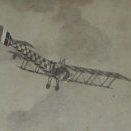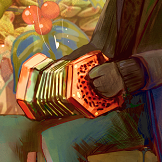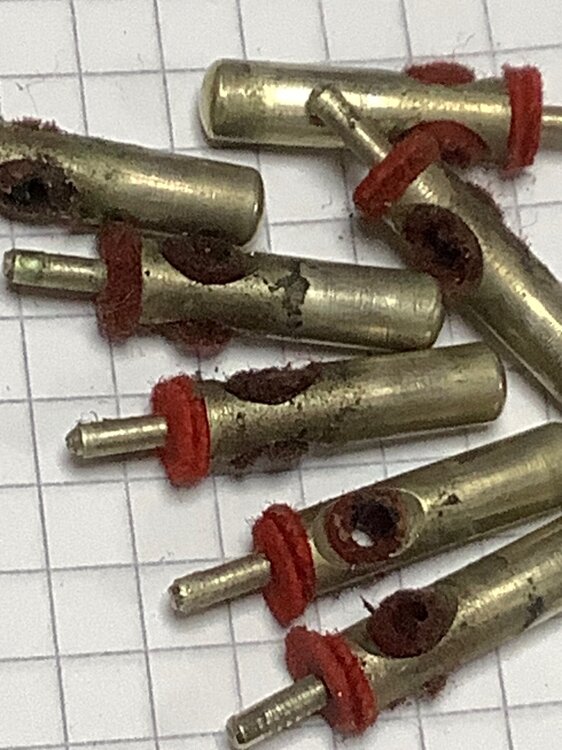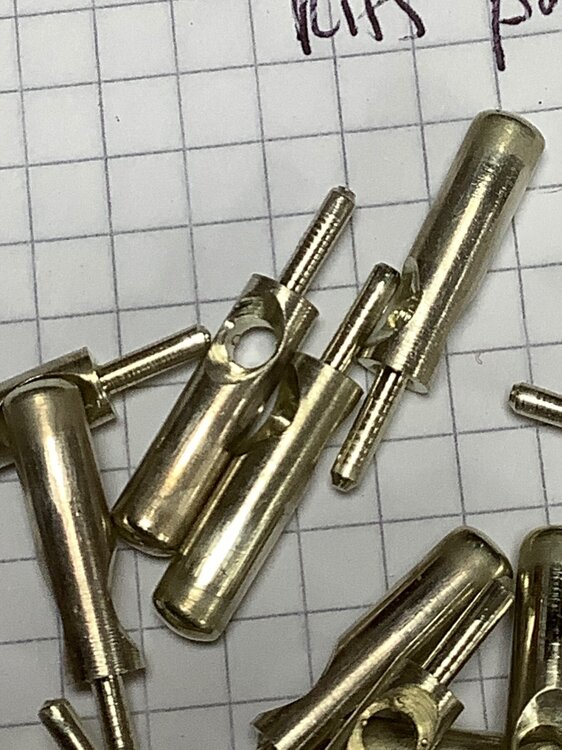-
Posts
2,094 -
Joined
-
Last visited
About Theo
- Birthday 01/29/1950
Contact Methods
-
Website URL
http://www.theboxplace.co.uk
-
ICQ
0
Profile Information
-
Gender
Male
-
Interests
I tune/repair/restore and buy and sell concertinas and melodeons.
-
Location
Gateshead, England. Land of the Angel of the North!
Recent Profile Visitors
3,464 profile views
Theo's Achievements

Heavyweight Boxer (5/6)
-

Advice for thickness of leather for bellows
Theo replied to Rod Pearce's topic in Instrument Construction & Repair
Going back to paring knives, I've had a similar frustrating experience with a Scharf Fix and now use one of these simple knives. It took me a long time to learn how to sharpen it properly but once sharp it's very quick and effective and just needs the edge to be refreshed on a leather strop after every couple of metres of cut. My sharpening mentor describes the degree of sharpness to be such that if you drop the knife your would be worried about your feet! https://www.hewitonline.com/Standard_English_Paring_Knife_p/tl-070-pk.htm -
Yes I can send to USA.
-

a short rant about trying to sell stuff...
Theo replied to seanc's topic in General Concertina Discussion
Well of course they are TV shows and as such have various degrees of scripting/editing/production. Nonetheless they can give you an insight into a the process of polite hard bargaining. Real life may not be so pleasant, I'm sure we've all had interactions with our fellow humans where things didn't go as smoothly as we would have liked. Example: I once experienced an unprovoked verbal assault from a complete stranger, eventually they huffed off. When I described the incident to a wise friend he consoled me with the thought that although I would probably never see the person again, they would have to continue living with their own anger. So if people get worked up and appear angry because you prefer not to accept their offer, don't take it personally, just let them go. -

a short rant about trying to sell stuff...
Theo replied to seanc's topic in General Concertina Discussion
Selling things is not as easy as it might appear! That's why so may people have paying jobs selling things. It's bit of a game really, Sometimes the hardest part is treating people politely when they are rude. There is an art to negotiating prices without demeaning the other party, or the object being sold. In the UK there is a TV series called Salvage Hunters where the dealer at the centre of things is an absolute master of the being hard-nosed but keeping things polite and friendly. I've pinched a few of his nice phrases that smooth the process. -
Two stages to this: 1 learning the tune so you can sing it, which just requires time spent listening, and that can be live music or recordings. 2 learning to put the tune in your head into your fingers on the instrument. They are very different skills and I think you can make better progress if you recognise that and adopt a learning strategy to suit.
-
It's quite normal for some reeds to be shorter than their slots. These reeds all look perfectly usable, though of course I can't tell from a photo if the reddens have been filed excessively. The amount of filing doesn't look excessive. How do the reeds respond? That is the important question. I think you may be being overly pessimistic.
-
Don't be too hasty to discard reeds. The originals in that instrument will be some of Lachenals best quality. Replacing them with easily available reeds may not be an improvement. Looking at the picture the filing seems to have been done carefully, so only reject reeds after they have proven themselves to play poorly.
-

How do you make reeds louder or softer?
Theo replied to Matthew Heumann's topic in Instrument Construction & Repair
Two things that can dull the sound of a reed - 1 valve not opening far enough. 2 reed not held snugly in reed pan. -

Planning a first build- reed question
Theo replied to Rayune's topic in Instrument Construction & Repair
How far can you take a reed? There is not one simple answer. The biggest factor is the starting pitch. In very general terms there are two extremes with gradual change between. Very low reeds with thick or weighted tips can be tuned up, often by several semitones, by removing metal from the tip. Very high pitch reeds can be tuned down by several semitones by removing metal from the lower part. Reeds of any pitch can also be lowered by tip loading. But any of these changes can degrade the performance of the reed, so you have to learn by experience how far is acceptable. Too much tip loading and the reed starts more slowly and volume is reduced. Too much filing to lower the pitch, and the pitch becomes unstable, going flatter as the reed is driven harder. -

Planning a first build- reed question
Theo replied to Rayune's topic in Instrument Construction & Repair
It is entirely possible to build a decent sounding anglo using accordion reeds. The late Paul Harvey made may such concertinas and built up quite a successful small market selling them under the name Flying Duck Concertinas. The trick is to take an accordion reed that has two tongues of the same pitch and tune one up and the other down to make the note combination that you need. It takes some experience to do this but you need only simple hand tools and some trial and error. Expect to wreck a few reeds as you learn. Eddy Jay who specialises in 3D printed concertinas also stared off with salvaged accordion reeds. -

Is this a Scam? : Lachenal Edeophone 61 key Maccann duet concertina s/n 3741
Theo replied to Ptarmigan's topic in Buy & Sell
And looking at the posting history of SteveFile he has only ever posted items for sale. Draw your own conclusions. -
Clock cleaner really is the solution(ha!) one brand, Horolene has already been mentioned. Place all the brass parts in the solution and leave overnight. Wash in hot water and dry. It works like magic. No time consuming mechanical cleaning required. When I’ve used it the parts have come out looking as if polished. It works on other non ferrous metals too. I’ve had good results on nickel buttons. It is designed to be used on delicate clock mechanic parts so I would not be concerned about using it on brass reeds. If the rivet is iron you would need to do some tests first. I’m not sponsored by Horolene. Before and after images of buttons. All I did was remove the felts. No mechanical cleaning or polishing.
-

Is this a Scam? : Lachenal Edeophone 61 key Maccann duet concertina s/n 3741
Theo replied to Ptarmigan's topic in Buy & Sell
It's a straight copy of this advert on concertina.net from last year. Unless cnet member SteveFile and Kinder Lemison are the same person then it's a scam. -

What is appropriate weight/ type of leather for anglo concertina straps?
Theo replied to KKallweit's topic in Ergonomics
I've seen anglo straps lined with felt, and I think you could also make a comfort lining with a soft kid or sheep clothing leather. -
Good advice. Make sure the edges of the cracks are not displaced up or down before gluing. Clamping to a flat surface is one option. Pva will creep over time so displaced cracks that have been clamped in position while gluing may move again. Hide glue and other protein base glued like rabbit skin, or fish glue are not subject to creep.











